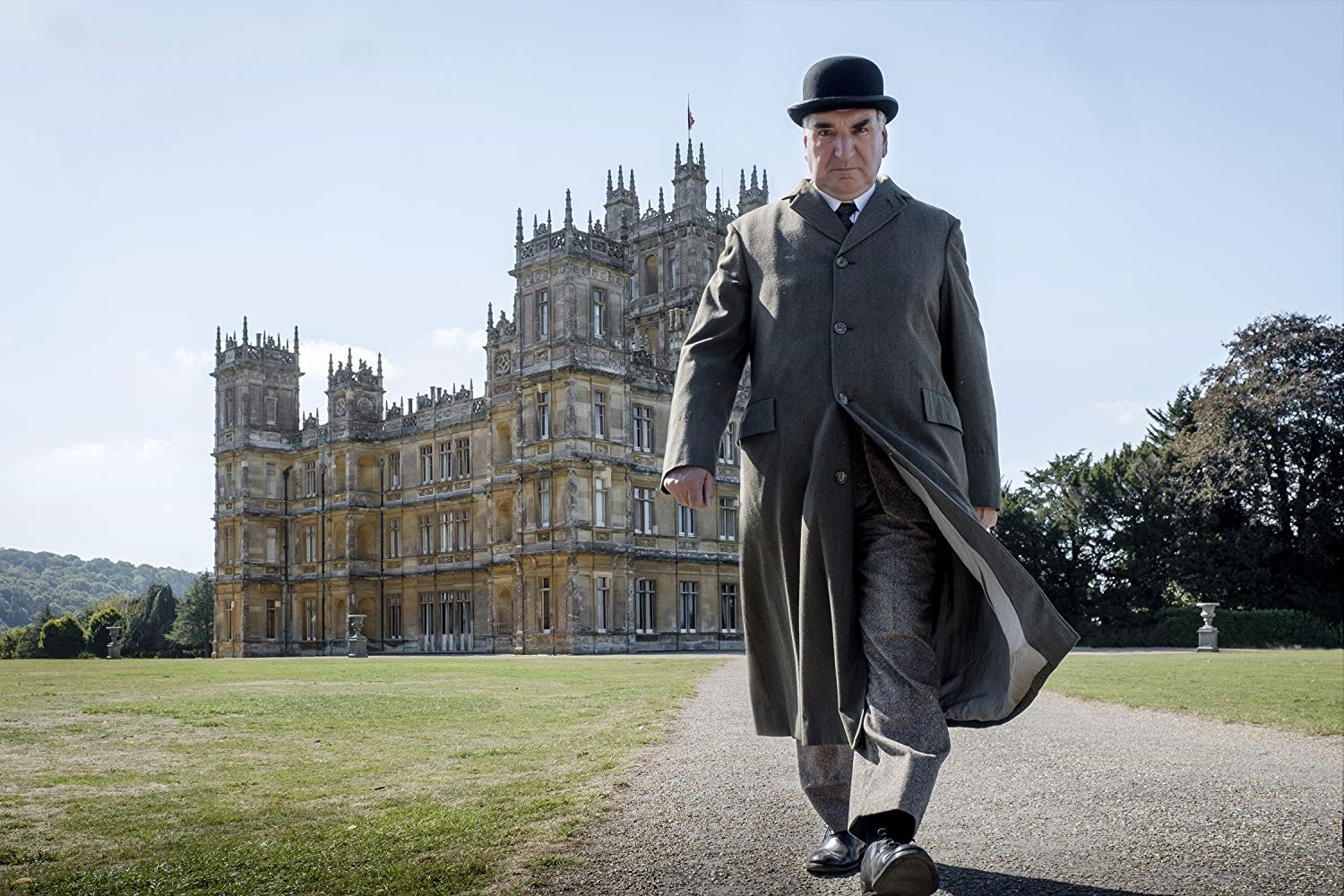The film ‘Downton Abbey’ opens next week, continuing the story from the popular PBS miniseries of the same name that ran from 2011-2016.
Lord Robert Crawley is a distinguished 20th-century gentleman who is caretaker of Downton Abbey, a historic English estate fit for a king, with dozens of bedrooms and a large staff to cook and clean.
Perhaps that’s one reason the king and queen have chosen to pay a visit.
Yes, King George V and Queen Mary of the United Kingdom are visiting Downton Abbey for one night during a stopover on their journey to another town, and “Lord Grantham” (that’s Crawley), and his family and servants have exactly two weeks to get ready.
The servants will polish the silver, dust every nook and cranny, and purchase the freshest food for the finest meals.
Then again, maybe not. The servants learn that the king has his own butler and his own servants to tend to matters. Even worse, the king’s servants are, well, snobs.
This means Lord Grantham’s beloved servants won’t be needed for this once-in-a-lifetime experience. Instead, they’ll be serving the servants. Not fair? You better believe it. As Daisy (one of Lord Grantham’s cooks) says, “We’re not footballs … and we don’t deserve a kicking.”
The film Downton Abbey (PG) opens next week, continuing the story from the popular PBS miniseries of the same name that ran from 2011-2016. It has the same actors and actresses (Hugh Bonneville as Lord Grantham and Michelle Dockery as Lady Mary), the same music (with a slight twist), and the same pace. Most fans of the series will walk away pleased. Lord Grantham’s mother, Violet Crawley (Maggie Smith), returns with multiple zingers, while her intellectual counterpart, Isobel Grey (Penelope Wilton), returns to counterpunch.
Yet the movie isn’t a one-dimensional “get-ready-for-the-king” film. It has several romantic side angles, a surprise or two and even a few good lessons.
The film also has a major caveat—a gay angle that will turn off many viewers (Details below).
Warning: minor/moderate spoilers!
(Scale key: none, minimal, moderate, extreme)
Violence/Disturbing
Minimal. Someone tries (but fails) to shoot and kill someone.
Sexuality/Sensuality/Nudity
Moderate. Several couples share brief kisses, although the film has no bedroom scenes. We see Lady Edith in a corset.
The film continues the story about Thomas Barrow’s homosexuality, although it seem more noteworthy during the span of a two-hour movie, instead of the plot being spread out over six seasons. We see him and another male character go to a gay nightclub, where men are dancing with one another (We see two men kissing). Later we see Thomas and his companion briefly kiss, too. Referencing the taboo nature of homosexuality, Thomas says, “Will they ever see it our way?” His companion responds, “I don’t know. Fifty years ago, who would have thought men could fly?”
Coarse Language
Minimal. I counted only two words (a single “my G-d” and a single use of the British slang “bloody”). Kudos to the filmmakers for not filling it with coarse language, as happens far too often when TV shows are turned into movies.
Other Stuff You Might Want To Know
The film opens with a recap of the TV series, in which a rape is referenced. The flashback also references a “gay man in 1920s England.”
When the Crawleys wake up to sunshine instead of rain, someone says, “God is a monarchist.”
Life Lessons
Serving is a virtue: The servants take pride in their work. Mr. Molesley embodies this trait best, wanting to wait on the king and queen.
Humility is appealing. The film puts both snobbery (demonstrated by the king’s servants) and humility on display. The latter is demonstrated by the entire household, including by Lord Grantham and Lady Mary, who don’t view their servants as beneath them.
Your sins will find you out: One minor character discovers this biblical truth.
Worldview/Application
At first blush, Downton Abbey would appear to be a film about greed (why are the Crawleys hoarding their possessions?) and elitism (what else would you call a plot about aristocracy?).
In fact, though, it’s just the opposite.
When Lady Mary wants to sell the castle and become a normal person, Anna Bates, a servant, tells her: You employ people. You give people jobs. Without your family, this community would crumble.
The Crawleys are anything but snobs. When portable chairs must be moved during a downpour, Lady Mary and Lord Grantham get to work—opting not to force the servants to perform the task.
What Works
The music. The plot. The grandeur. Seeing the castle on the big screen is more enjoyable than watching it on a tiny television at home.
What Doesn’t
The gay angle with Thomas Barrow wasn’t surprising—the TV series tackled the subject, after all—but it will make it less palatable for some families.
Discussion Questions
1. Name five positive characteristics about Lord Grantham and his family.
2. Do you think the Crawleys are humble?
3. What does the film teach us about finding joy in work?
4. What can we learn from Thomas about loving those with which we disagree?
5. Would it have been better to sell the castle? Was Lady Mary right?
Entertainment rating: 4 out of 5 stars. Family-friendly rating: 3 out of 5 stars.
Rated PG for thematic elements, some suggestive material, and language.
